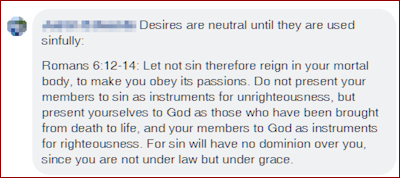by F. X. Turk
Before you get too worked up, this is not a suicide note. What this post ought to be seen as is an end to my hiatus as it gives way to retirement. It has gone through a couple of drafts. I hope it says only what I mean to say and not everything that I really want to say.
In the 15-ish years I have been on the internet, I have been accused of a lot of things. Most of the time, it has been by people who did not read what I wrote. That's just how things go, and the ignorance of other people should never stop a person from doing something worthwhile.
The problem I am having at this point in my hobby-on-hiatus is that as I look at many (most) of the people who were inspired by the work done by this blog and some of my other blogs, those people are terrible. From my perspective, however, this problem has not gotten better with age: it has gotten worse.
There's a hard way to see if something can be done about this, and an easy way.
The easy way would be to start blogging again -- to open up this blog again and get 3-4 posts a week on the obvious problems with blogs which never post anything but the internet equivalent of this:
That path would mean showing the problem and offering the solution (if there is one) to people who don't know the difference between discernment/apologetics and rumor-mongering/slander (the biblical category, not the legal charge). It would require a staff and donors because it would also require me to do this full-time and not merely when things sort of wander into my field of vision.
The hard way to confront that sort of thing looks easy, but takes more commitment to what is actually right and actually good than creating yet another parachurch organization which damages the local church and causes those who say they have faith in Jesus Christ to develop a skeptical and jaundiced view of how a church in real life works. That hard way is to stop calling what I am doing here a "hiatus" and to start calling it a permanent protest retirement.
That path means that I have some other things that need to be said clearly, and then I need to say no more.
Here's what's left to be said:
Way far north of 95% of Christian blogging is really just exhibitionism, either exposing one's own poor judgment and thinking or exposing others faults (usually both) for the sake of gaining attention for one's self. I think unintentionally, I have done this. I repent of ever doing that, and I repudiate everyone who is blogging for the sake of exposing himself or herself to gain an audience. If you think that's only people with modest-sized blogs, or people on the fringes, you aren't reading the big blogs with any kind of wisdom or insight, or tracking how many people in Christian circles are getting famous from blogging rather than from having actual accomplishments or a decent faith and a world-tilting local church.
I repent of ever, at any time, causing anyone else to fall into that trap. If my example caused you to blog, you are doing it wrong. You are responsible for you, but I am responsible for doing something which caused you to do wrong. I repudiate it, and I ask you to do the same.
I repent of causing anyone who was otherwise a quiet and private person to get the attention of the internet lynch mob. I am sorry that I caused anyone to look for your name because you got 0.0001% famous by being associated with me (someone who is 0.001% famous) and because they looked for you, they made your life miserable. I repudiate anything which caused you to live in violation of 1 Thes 4, and I confess and repudiate that I ever violated it myself.
For anyone who wants to hypothesize why I would say that specifically, two notes: [1] You are definitely part of the problem; [2] Every single one of my internet friends has suffered because they have allowed themselves to be associated with me simply because they are human beings who are not even remotely perfect. And yes: recent events in one of their lives is particularly on my mind in saying this. It is not because someone is guilty or innocent, but the exhibitionistic hobby of some is causing his family amplified pain and shame, and God will judge the ones doing it that for it. The only reason those people are seeking out anyone is that a person knows someone allegedly-famous and therefore they think this person is "famous" or "well-known." That perverse definition of "well-known" in itself proves you-plural who are doing this are ineffable idiots, but saying more than that will not cure you-plural of it. I am deeply ashamed that my bush-league notoriety has caused anyone to make bad things worse, and I repent of my part in drawing your attention to people who just wanted to laugh at my comic book clip art.
A corollary to this apology and retraction is this: if you are using the internet to talk to people who do not know you and cannot know you, you are doing some of the things I did, and you probably do not understand the consequences. I didn't. The first consequence seems really obvious to me now: you are kidding yourself about your level of influence. I would argue that you are actually reaching fewer people and ministering to fewer people by never actually being anywhere long enough to do something "like ministry" than you would be if you belonged to a local IBF church with 25 members who meet in a wooden shack with no modern amenities.

The justification, "if I can just save one person ..." doesn't work in its gun-control incarnation, or in its justification of abortion, or any other bad idea. It certainly doesn't work for someone who claims that the Bible is his or her highest source of authority. The Bible never asks anyone to be a mostly-faceless, mostly-nameless shill for his own unregulated opinions -- and this a second corollary to my apology and retraction: in all seriousness, nobody is holding you accountable for your actions, and you are harming the spiritual well-being of those you are seeking to influence by proliferating a system in which there is no accountability. You are making the local church into nothing, and that should bother you.
I apologize to everyone and anyone who ever used my blogging as a substitute for having a local church, and loving real people, and being under the authority of elders and men of good faith who are in it for your good and God's glory. I was wrong to put myself in that place, and I was wrong to let you think it was ever a good idea.
I repent of exhibitionism. I repent of leading others to it. I repent of demonstrating the lack of accountability which exhibitionists acquire and which leads themselves and others astray. I repent of giving that example to other and that they followed it.
These things have helped create a vile culture of people who use the internet for things Christ would abhor. I underlined this problem in an open letter to James White a few years ago (
link). Another way to see it is what we think we object to. We get all worked up about Creflo Dollar buying a big airplane. We ignore the dollars spent on carting around all the names on the A-List, B-List, D-List and so on down to whatever Z-list it is people have looked down to in order to find my name, as if those dollars are justified (when they are probably higher than the bank note of Creflo's airplane). We think our version of whatever is happening here in "our part" of the internet is good and godly because we agree with it. Then we forget that while Paul wrote letters, he didn't publish books: he lived next to people and worked with his hands for his own support so that he could gain the good reputation that he wasn't teaching them for the money. We forget that our exposition of God's word is not nearly as valuable as God's actual word, and God's actual commandments which we would keep if we loved him.
I repent of every time I did anything which made me part of that high-flying set of exhibitionists, and I repent of ever thinking it was good for me or for others. I repudiate the lot of it, and I urge you to stop paying people to come and tell you things you the Bible does a better job of telling you already.
That's plenty to say by way of apology and retraction. There are a few other things which ought to be said by way of thanks in spite of what has been wrought here.
The first thing is to thank everyone who ever tried to see this a different way than I have confessed here and tried to use it for actual-good and not self-aggrandizement. There are many of you. In the times when something I wrote here or elsewhere for reasons I didn't fully understand as sinful and God used it for your good anyway, there is proof enough for me that God is good and not merely greedy for justice and making the scales even. He used my crooked and wretched stick to draw a straight line more than once. The times I followed a path created by people who wanted to be famous and rich and God allowed what I wrote to make you more like him rather than Him treating me like Demas -- which I would have deserved -- is evidence that God's grace is greater than human words can rightly grade or explain.

Thanks to Phil Johnson, who doesn't believe any of things I have written in this post, and isn't seeking his own fame. If he could have his own way, he'd be a one-eyed hermit casting a monocular gaze over his own back 40. His goal has always been that people hear the word of God as preached by his pastor. Those of you who do not know him cannot know how pure his heart is toward God's people and God's word. You cannot know how deeply he wants people to see and to serve the savior of the world. His intentions here have always been pure even when mine were not, and I think his ministry to archive and present the teaching of his local pastor to anyone who needs them far exceeds the teaching of the Pharisees who run Christian publishing and Christian media. He and his family have always been my friends, and I thank him for his generosity to make anything good that has come of this possible. I also thank him for
the PoMotivators.
Thanks to Dan Phillips, who also has always come at this thing with a pure heart in spite of the accusations and hard judgments of those who, frankly, could have done better by him but didn't because they didn't like him. Their pettiness is a judgment on them, and it will be something they will answer to Christ for. Dan, too, has always been my friend and a teller of truth to me, and he also does not see this endeavor the way I do now. Undoubtedly,
this post about the pitfalls of people being and doing what we have been and done over the years was formative in helping me see what is wrong with "internet ministry." My hope is that he will find the fruit in his ministry that he is looking for, and that people will not just hear him preach the word of God, but that they will do what he tells them it says to do.
Thanks also to everyone who would own the nickname "side-kick," because there are far too many of you to name, and I would be afraid to miss any of you. You have been the only other reason this has not been a terrible experience. Some will say I should call you out for enabling me; I call you out for seeing that even in my worst moments, there was a seed in all of it meant to bring joy and good humor to the problem of being all too human in a world which needs Jesus Christ. I don't blame you for my poor judgment and my poor character and weakness. I hope that my faults will not take root in you, and that you will forgive me if they already have.
To the rest of you, good luck. God bless you. For the things you ought to repent of, repent immediately, as soon as possible. For the things God
really wants you to do, do them with gusto -- and remember that if what you think "God
really wants you to do" is make what God has already said in his Word look somehow phony, old-fashioned, or powerless, you are doing it wrong.
So what's left for me to do at this point is close up shop. The content here has been and always will be under Phil's purview, and if he would keep it as-is, I trust his judgment. I'll be archiving all the other blogs under my name and closing them in the next 60 days; I'll be shuttering Twitter; If I do not know you personally, I will be unfriending you on Facebook (a process I have been working on since August). I want you to forget me if that is possible, and if it is not, I ask that you forgive me and let me be at peace as I will seek to make amends by turning my back on any attention not related to people I see every day and places I go every day. The rest of it is just bound to harm people who do not deserve it.
God bless you all. Be in the Lord's House with the Lord's People on every Lord's Day, and do your part to keep the internet barn door closed.

 egarding the previous post, let me underscore my answer to an objection that keeps coming up. One of my critics on Twitter stated it as succinctly as anyone. He wrote, "Attraction and lust aren't the same thing. [Therefore] your proposition collapses entirely."
egarding the previous post, let me underscore my answer to an objection that keeps coming up. One of my critics on Twitter stated it as succinctly as anyone. He wrote, "Attraction and lust aren't the same thing. [Therefore] your proposition collapses entirely."



 ull disclosure: Here is the development that finally provoked my sense of consecrated indignation enough to motivate me to start blogging again:
ull disclosure: Here is the development that finally provoked my sense of consecrated indignation enough to motivate me to start blogging again:

 Yes, all of us struggle with evil desires. That's part of our fallenness. Even Paul struggled with covetousness—evil desire (Romans 7:7-25). But Paul's whole point was that those desires (even if never acted on) are sins to be mortified, not prize ribbons to be worn as badges of one's identity.
Yes, all of us struggle with evil desires. That's part of our fallenness. Even Paul struggled with covetousness—evil desire (Romans 7:7-25). But Paul's whole point was that those desires (even if never acted on) are sins to be mortified, not prize ribbons to be worn as badges of one's identity.
 he issue underlying practically every popular evangelical trend we have ever decried here on
he issue underlying practically every popular evangelical trend we have ever decried here on  Christians are expressly forbidden to embrace the world's values or seek its approval: "Do not love the world or the things in the world. If anyone loves the world, the love of the Father is not in him. For all that is in the world--the desires of the flesh and the desires of the eyes and pride in possessions--is not from the Father but is from the world. And the world is passing away along with its desires, but whoever does the will of God abides forever" (1 John 2:15-17).
Christians are expressly forbidden to embrace the world's values or seek its approval: "Do not love the world or the things in the world. If anyone loves the world, the love of the Father is not in him. For all that is in the world--the desires of the flesh and the desires of the eyes and pride in possessions--is not from the Father but is from the world. And the world is passing away along with its desires, but whoever does the will of God abides forever" (1 John 2:15-17). The notion that we must win the world's esteem before the gospel can do its work is, I'm convinced, a spiritually crippling error. But it's also the presupposition underlying most of the trends currently vying for widespread acceptance within the so-called evangelical movement. In reality, for three decades or longer the broad movement has been softening its commitment to (and in many cases totally abandoning) the two most important evangelical convictions—sola Scriptura and sola fide. Those cardinal biblical doctrines are now being replaced by secular dogmas: "wokeness," "social justice" (a liberal counterfeit, not biblical justice), critical race theory, gender fluidity, and an ever-increasing number of ideologies bred and popularized in secular academic circles.
The notion that we must win the world's esteem before the gospel can do its work is, I'm convinced, a spiritually crippling error. But it's also the presupposition underlying most of the trends currently vying for widespread acceptance within the so-called evangelical movement. In reality, for three decades or longer the broad movement has been softening its commitment to (and in many cases totally abandoning) the two most important evangelical convictions—sola Scriptura and sola fide. Those cardinal biblical doctrines are now being replaced by secular dogmas: "wokeness," "social justice" (a liberal counterfeit, not biblical justice), critical race theory, gender fluidity, and an ever-increasing number of ideologies bred and popularized in secular academic circles.
 t's been more than six years since I retired from the blogosphere. For half a decade, whenever someone would ask if I missed blogging, my honest answer was, "Not at all. Never even once." There wasn't a single moment in all those years when I thought, I wish I were still blogging so I could write something more than a Tweet about this issue. In my seven years of blogging, I had posted on practically every issue I really cared about. I ran out of opinions.
t's been more than six years since I retired from the blogosphere. For half a decade, whenever someone would ask if I missed blogging, my honest answer was, "Not at all. Never even once." There wasn't a single moment in all those years when I thought, I wish I were still blogging so I could write something more than a Tweet about this issue. In my seven years of blogging, I had posted on practically every issue I really cared about. I ran out of opinions. I had tried posting some opinions in the comments sections of a couple of popular blogs, but they made it clear they were not interested in dissenting views. One famous blog closed their comments completely when I tried joining their discussion. So
I had tried posting some opinions in the comments sections of a couple of popular blogs, but they made it clear they were not interested in dissenting views. One famous blog closed their comments completely when I tried joining their discussion. So 

 I suddenly have the itch to write about some of these things. Not every day, of course, but from time to time—perhaps weekly or so. Dan Phillips is now blogging to a bigger audience
I suddenly have the itch to write about some of these things. Not every day, of course, but from time to time—perhaps weekly or so. Dan Phillips is now blogging to a bigger audience 

















